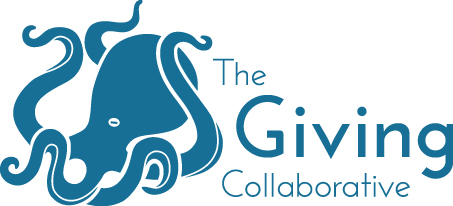They spoke no English and hadn’t been shaving for too many years when they arrived in the United States soon after World War 2. The three brothers came here to build a better life for themselves and, once settled, they eventually combined their skills to open a small business carving cemetery monuments. They led quiet lives that didn’t include wives and children, and they were never known in their community much beyond the granite headstones that circled their business. Certainly, no one would have guessed that they possessed the means to leave almost $2 million to local charities.
As the development director of their local hospital, I didn’t recognize their names when they appeared in a letter from an attorney informing me that the last remaining sibling had died, and my organization had been included in his will. Indeed, my database search came up empty, nor were they known by the hospital’s leadership or board members.
After leaving several messages, I finally connected with the attorney, who also served as the man’s executor. He told me about the family and that one brother had once received cardiac care at my hospital. I expected a modest gift given their profession, but the attorney relayed that my organization would receive the largest share of an estate valued close to $2 million. He gave me his best estimate for how long the probate process was expected to last, said he would keep me updated, and encouraged me to contact him as needed.
I did call a few times over the next six months, leaving messages that were never returned. He also did not respond to letters requesting updates. Feeling frustrated, I contacted a board member who was a well-known local attorney, and he offered to follow up. It took multiple attempts over several weeks, but my board member eventually was successful in reaching him and expediting the process. An initial check for $1 million was soon presented, and, with the executor’s approval, we used the funds to renovate and name a cardiac facility for the three brothers. We publicly recognized and thanked the attorney at the dedication ceremony and gave him an opportunity to speak on behalf of the donors.
I don’t believe this lawyer was dragging his feet in executing the will. But there are stories about attorneys and executors who deliberately delay the process in order to increase the fees they are paid. These unnecessary payments reduce the amount of the estate to be passed along to beneficiaries, including charities.
It is vital that you protect your organization’s interests once you’ve been notified that it has been included in someone’s will. Don’t be shy about this fiduciary responsibility but carry it out with diligence and with respect for the attorney, executor and family. Consider taking the following steps:
• Ask for the names and contact information for the attorney, executor and any remaining family members or friends of the deceased.
• Note the date and location of death.
• Request a copy of the will, or at least the section of the document that includes your organization.
• Review the will to see if the name of your organization and location are listed correctly. This is especially important if its name has changed since the will was written. In this case, consult with your organization’s attorney to prepare an explanation for the change and to verify that you are the same group designated in the will, even if your name changed because of a merger or rebranding.
• Check the names of other not-for-profit organizations listed in the will to see if any have closed, become a for-profit, or experienced other significant changes. If they are no longer eligible for a charitable bequest, this could increase your share of the estate, depending upon how the will is structured.
• Review any restrictions on the bequest. If it is restricted to a service or program that you no longer offer, be prepared to present your case explaining why your organization is still an appropriate recipient.
• Does the will require a specific type of recognition? Is this still appropriate and available?
• Request copies of any appropriate documents as they become available, especially an inventory of the estate.
• Ask about the anticipated time frame for settling the estate and distributing its assets, then add this to your calendar. Remain in regular contact with their attorney and executor to monitor the status of the estate settlement (add this to your calendar as well). But do be patient, realizing that the process does move slowly and may legitimately take more time to resolve than anticipated.
• You may wish to involve your organization’s legal counsel because the estate may require specialized expertise that you cannot provide. This cautious approach could prevent or allow you to prepare for unanticipated problems as the will is executed.
• Maintain detailed files and make key staff members aware of their location. The records should be easy to find in the event you no longer work at the organization at the time the estate is settled. Many years ago, when cleaning out a predecessor’s file cabinet, I discovered a long-forgotten file regarding a charitable remainder trust that had been created several decades earlier but never booked. I was able to locate the trust’s attorney, and, through further investigation, realized that the trust’s assets had been improperly invested for the benefit of the beneficiary, not my organization. You can be sure that finding led to some interesting discussions.
Apply your highest level of stewardship to those involved in the estate, expressing your organization’s gratitude in a prompt and appropriate manner. If multiple charities are receiving bequests, the family, executor and attorney will have the opportunity to compare your responses to those of other recipients. Your stewardship could create new relationships with them that result in future gifts.
It is important to realize that some family members may resent a bequest to your organization, believing that they should have received the money instead. One organization that I worked for was designated to receive half of a donor’s house, with the other half going to family members who were living in the home. They felt cheated – not only did they not inherit the entire house, but they had to use their own money to buy out my organization’s share so they could continue to live there. Needless to say, they were not interested in offering their future support.
Bequests can have a major impact on the way your organization serves its communities. Manage the process thoughtfully, diligently, and with continuous gratitude. And, whenever possible, publicize the bequests you have received in order to leverage additional estate gifts in the days ahead.


About The Author: Richard Solomon
Rich is The Giving Collaborative’s Vice President and Senior Consultant and an original member of the TGC team. He is an accredited fundraiser with 29 years of experience in managing successful philanthropy programs. He previously served as Executive Director of the New England Sinai Hospital Foundation in Stoughton, Massachusetts, where he led the philanthropy program for nine years. Rich is a past President and current board member of the New England Association for Healthcare Philanthropy (NEAHP). He previously served on the Board of Directors of the Association for Healthcare Philanthropy (AHP) and as a Trustee of the AHP Foundation. Rich also serves on the Board of Directors of Swim Winchester and is directing the organization’s feasibility study for a $15 million capital campaign.
More posts by Richard Solomon